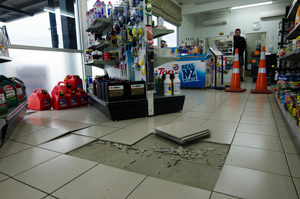
In Florida, property owners have a responsibility to maintain a safe, hazard free environment for visitors who are on their property. When they fail to do so and a visitor is injured, that injured person has a right to seek compensation by filing a premises liability lawsuit. A Lutz premises liability attorney can help you through the process.
When an Accident is More Than an Accident
Premises liability lawsuits can arise from a number of situations, including:
- Slip, trip and fall accidents
- Negligent or inadequate security
- Swimming pool Injuries
- Playground injuries
- Stairway, elevator and escalator accidents
- Animal attacks
- Poor maintenance
- Lack of smoke detectors, emergency lights and other safety devices
- Exposure to hazardous materials
If you have been injured on someone else’s property, you may be entitled to compensation under Florida’s premises liability laws. These laws hold property and business owners responsible for the safety of any person who visits their property.
Duty of Care
In Florida, property owners have a duty of care to the people who visit their property. “Duty of Care” means that a property owner must apply a standard of reasonable care to ensure no harm comes to any visitors to their property. If a property owner’s actions do not meet the legal standard of care, then they can be considered negligent in their duty of care, and any damages resulting may be claimed in a lawsuit for negligence.
In a premises liability lawsuit, you must prove that the property owner was derelict in their duty of care. This means that, in order to be successful, you must prove:
- There was a hazard on the property.
- The property owner knew about the hazard.
- The property owner failed to remove or repair the hazard.
- The hazard was responsible for your injuries.
Liable parties in a premises liability suit may include property owners, tenants, property management companies and sub-contractors.
Classification of Visitors in Florida Premises Liability Law
Why you were on the property when the accident occurs can have an effect on the outcome of your case. In a premises liability case, the courts will assign a level of responsibility to the property visitor based on why you were on the property.
These categories are:
Invitee – The visitor is on the property for business reasons. A property owner is legally obligated to protect invitees from any dangerous condition that the owner knows or should know about.
Licensee – This applies to a person visiting a private residence, whether they were invited or just stopped by. A property owner must warn the licensee of any dangers he knows about, but is not required to inspect the premises or to repair dangerous conditions when he becomes aware of them.
Trespasser – The visitor is unwanted or uninvited. Usually, a property owner does not owe an adult trespasser the same duty of care he owes an invitee or licensee.
If the trespasser is a child, then special “attractive nuisance” rules apply. In these cases, the property owner is expected to exercise reasonable care to prevent any child from coming to harm because of conditions on their property, even if they are trespassing. “Attractive Nuisances” can include such things as swimming pools and playground equipment.
Answers to Your Questions About Premises Liability
How Much is Your Slip and Fall Case Worth?
A few of the expenses that you will need to consider when appraising how much your slip and fall accident case is worth are:
• Medical Costs– Current medical costs may be easy to calculate, but getting an accurate picture of future costs can be difficult.
• Lost Income– Past income loss can be easy to calculate, but sometimes future income loss is hard to put a number on. For instance, what if you lose your job because you aren’t able to perform, or if you are forced to take a lower paying job because of your injuries?
• Pain and Suffering– Pain and suffering is perhaps the hardest loss to quantify. Figuring out what counts pain and suffering can be a difficult but important first step.
Finding an experienced Lutz Premises Liability Attorney may be the easiest decision you have to make along the way. Let someone who knows the process help you determine what your case is really worth.
What are Some Mistakes that Might Keep Me From Collecting the Maximum Award in My Slip and Fall Case?
Some of the most common mistakes in slip and fall cases are:
• Not reporting the accident
• Not seeking medical attention after your accident
• Failing to report your claim in a timely manner
• Failing to collect evidence
• Discussing your case with anyone other than your attorney
• Not considering the total cost of your injuries
• Failing to seek legal representation
What Should I do After a Slip and Fall Accident?
Here is a checklist of things you should do if you’re involved in a slip and fall injury:
• Seek medical attention, even if you don’t think you were seriously hurt.
• Seek out witnesses. Get contact info for anyone who may have seen you fall.
• Let the property owner know about your accident. Keep calm, and wait to talk to a lawyer before deciding on legal actions to take.
• Gather evidence. Take pictures of the scene were the accident occurred, and do it right away.
• Call a Lutz Premises Liability Attorney.
Speak With a Lutz Premises Liability Attorney
If you were injured due to the negligence on the part of a property owner, it’s your right under the law to pursue compensation for your injuries. Lutz accident attorney Tania L Rivas and the Rivas Law Group are here to help. Call us today to learn how you can recover compensation for your injuries. The Rivas Law Group handles premises liability cases on a contingency basis, which means there are no up-front costs to our clients for representing them, and we only collect our fee when we’ve won your case.



